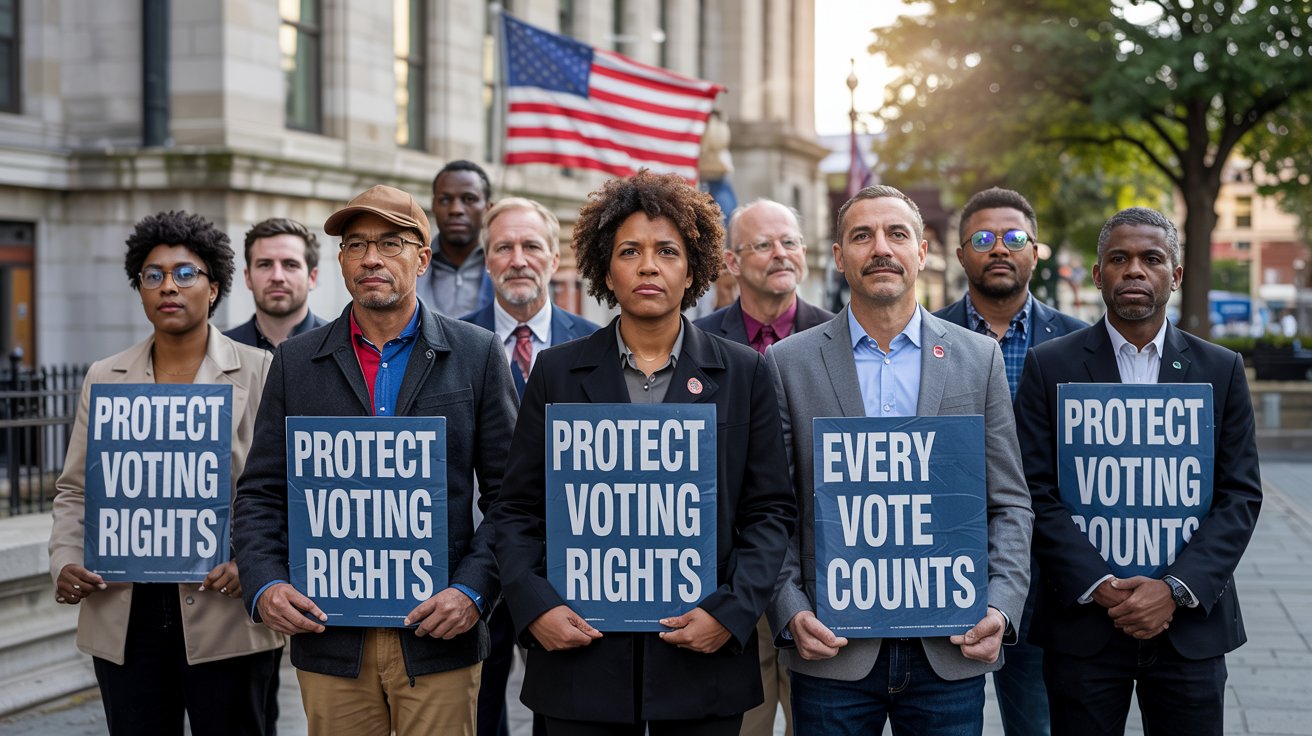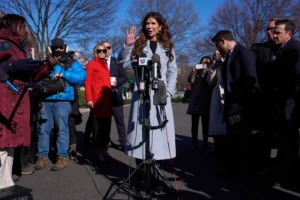Federal Court Battle Erupts as Civil Rights Groups Fight New Voter ID Laws Across America in what could become one of the most consequential voting rights showdowns in modern U.S. history. Leading civil rights organizations have taken legal action against newly passed voter ID laws in several states, arguing that these measures could suppress the vote of minorities, elderly citizens, low-income groups, and students.
With the 2025 elections approaching, these lawsuits may not only shape who gets to vote—but whether the U.S. upholds its democratic promise of equal access for all citizens.
What Are Voter ID Laws and Why Are They So Controversial?
Voter ID laws are regulations that require individuals to show specific types of identification before casting a ballot. Proponents say these laws prevent voter fraud and safeguard elections. However, civil rights advocates argue they unfairly impact certain groups who are statistically less likely to possess government-issued photo IDs.
Key Concerns:
- Lack of access to acceptable ID for seniors, minorities, and low-income citizens
- No strong evidence of widespread voter fraud in U.S. elections
- Complex bureaucracy involved in obtaining IDs
Real-World Data:
According to a 2023 Pew Research Center survey:
- 25% of African Americans lack government-issued photo ID
- 18% of citizens over age 65 do not have valid ID
- 15% of low-income citizens earning under $35,000/year also lack photo ID
Federal Lawsuits: Which States Are Being Sued and Why?
This heading explains the core legal actions taking place across the country.
1. New Hampshire
- Law in question: House Bill 1569
- Issue: Requires burdensome documentation for new voter registration
- Filed by: American Civil Liberties Union (ACLU)
- Claim: Violates First and Fourteenth Amendments
2. Georgia
- Law in question: Senate Bill 189
- Issue: Allows voter challenges based on residential data
- Filed by: Lawyers’ Committee for Civil Rights Under Law
- Claim: Enables mass, unjustified voter purging
- Credible Source: Read lawsuit details
3. Texas and Florida
- Changes: Restrictive absentee ballot rules, early voting limits
- Impact: Harsher requirements for mail-in voting and registration verification
- Concerns: Disproportionate impact on disabled and elderly voters
Why Civil Rights Groups Are Leading This Fight
Civil rights organizations are historically responsible for expanding access to the vote. From the Voting Rights Act of 1965 to today’s courtroom battles, these groups serve as watchdogs against systemic suppression.
They argue these voter ID laws:
- Violate constitutional protections
- Discriminate based on race, age, or economic status
- Reverse decades of progress in voting accessibility
Quote from ACLU:
“No eligible citizen should be blocked from the ballot box because of paperwork hurdles or baseless challenges.”
The National Impact: Why These Court Cases Matter Beyond State Lines
These lawsuits aren’t just about individual state laws—they’re testing the federal limits of how far voter ID laws can go before they infringe on constitutional rights.
If courts side with civil rights groups:
- States could be required to revise or roll back voter ID policies
- 2025 elections may see greater ballot access in close races
- National precedent could be set limiting voter suppression tactics
If states win:
- Expect more ID laws introduced in swing states
- Could impact turnout in 2026 midterms and 2028 presidential elections
What Can Voters Do Now?
Stay prepared and informed:
- Confirm voter registration status via nass.org/Can-I-Vote
- Know your state’s ID requirements ahead of time
- Contact local election offices for help securing documentation
Advocates also encourage Americans to support lawsuits or reform measures that protect voting access.
Conclusion: The Future of Voting Rights Is Being Decided Now
The wave of lawsuits from civil rights groups challenging new voter ID laws is more than a court battle—it’s a referendum on the health of American democracy. While there’s little evidence to justify stricter laws, the data shows clear harm to vulnerable communities.
Whether the courts uphold these laws or strike them down, the outcomes will reshape who votes—and how—for years to come.





